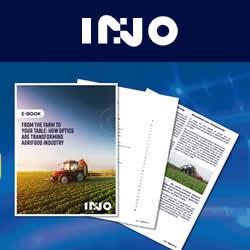gus® Celebrates 60th Anniversary With Recyclable Bike, Underscoring Its Current and Future Commitment to Sustainability
To mark its 60th anniversary, igus® has launched its innovative and environmentally friendly bicycle — called the igus:bike® — on a world tour, underscoring its commitment to sustainability. Made from recycled plastics, the bike will spend a year traveling through 16 countries, signaling a new form of urban mobility while demonstrating the success of a circular economy of plastics.
To mark its 60th anniversary, igus® has launched its innovative and environmentally friendly bicycle — called the igus:bike® — on a world tour, underscoring its commitment to sustainability. Made from recycled plastics, the bike will spend a year traveling through 16 countries, signaling a new form of urban mobility while demonstrating the success of a circular economy of plastics.
A champion of sustainability, igus® has steadily been increasing the proportion of recycled plastic since the start of development to 50% — and the trend is rising. This capability makes it possible to process used fishing nets, shampoo bottles and other plastic waste into regranulate for rotational-molding machines. As the igus:bike® is on display during its world tour, igus®'s mission is to show that plastics don't have to end up in incineration or landfill, but can be used as the raw material for other products.
"As a company that has been manufacturing industrial components for movement from plastic for 60 years, we are committed to driving forward the transformation to a sustainable circular economy for plastic. The igus:bike is a milestone on this journey," says igus CEO Frank Blase. "On this trip, we hope to inspire many companies and end consumers to also commit to sustainable solutions when using plastics."
Made from high-performance plastics, the igus:bike®'s ball bearings, drive and freewheel don't require any lubrication, which can become a dirt magnet on conventional bicycles. This design also eliminates the need for time-consuming relubrication and cleaning. In addition, the bike is weather-resistant and corrosion-free, enabling riders to hose it down for cleaning or leave outside overnight.
The igus:bike® has already gone into high-volume production under the name RCYL and is available for ordering on the company's website. Learn more at: www.igus.bike.
www.igus.com
About igus®
igus GmbH develops and produces motion plastics. These self-lubricating, high-performance polymers improve technology and reduce costs wherever things move. In energy supplies, highly flexible cables, plain and linear bearings, and lead screw technology made of tribo-polymers, igus is the worldwide market leader. The family-run company based in Cologne, Germany, is represented in 35 countries and employs 4,600 people across the globe. In 2023, igus generated a turnover of €1.136 billion. Research in the industry's largest test laboratories constantly yields innovations and more user security. Two hundred 234,000 articles are available from stock, and service life can be calculated online. In recent years, the company has expanded by creating internal startups, for example, ball bearings, robot drives, 3D printing, the RBTX platform for Lean Robotics, and intelligent "smart plastics" for Industry 4.0. Among the most significant environmental investments are the "chainge" program - recycling used e-chains and participating in an enterprise that produces oil from plastic waste.
Featured Product

